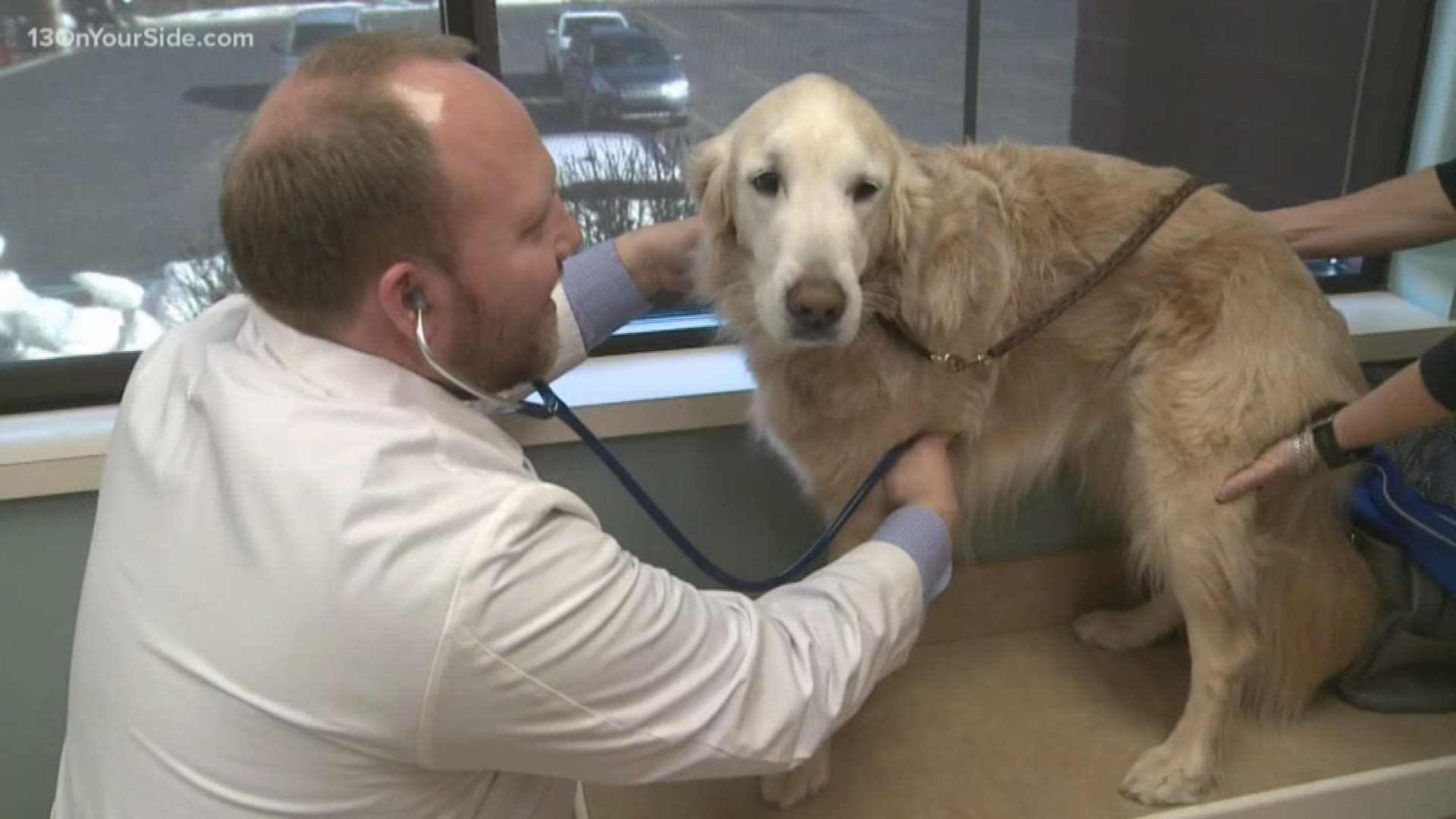GRAND RAPIDS, Mich. — Concerns over the coronavirus have quickly become an everyday part of our lives, and some are concerned about how the virus will affect our pets.
In February, health officials in Hong Kong confirmed a German shepherd tested "weak positive" for COVID-19. According to a report out of Hong Kong, the German shepherd along with a second dog were sent for quarantine, but it was their owner who was infected with the coronavirus.
The Hong Kong government urged pet owners not to leave their pets alone and to stop kissing them. The story made its rounds on social media, gaining international traction and fueling fear that humans could pass COVID-19 to their pets or vice versa.
However, according to Dr. Ryan Carpenter with Family Friends Veterinary Hospital, it's unlikely that our dogs will get COVID-19. There is currently no evidence that animals, including pets, can be infected with the coronavirus, and no evidence that animals can spread the virus in the U.S.
If pet owners are asked to self-quarantine or become ill due to the coronavirus, the Center for Disease Control and Prevention recommends:
- Maintain separation and avoid direct contact with pets and other animals, including petting, snuggling, being kissed or licked, and sharing food. Try to make alternative arrangements for someone to look after pets in case you become ill.
- If you must care for your pet or be around animals while you are sick, wash your hands before and after you interact with pets and wear a face mask.
Dr. Carpenter said pet owners to make sure they have up-to-date medical records should their dog or cat come down with any illness.
Pet owners should always have a “pet preparedness plan” in case of emergencies, including:
- Make sure you have enough food and products to care for your pet
- Identify a family member or friend who can care for your pet if you or someone in your house becomes ill
- Have crates, food and extra supplies on hand for quick movement
- Keep all animal vaccines up to date in the event boarding becomes necessary
- Ensure all medications are documented with dosages and administering directions.
- Have an identification collar for your pet: collar with ID tag and microchip
Dr. Carpenter also said that pet owners shouldn't worry about leaving their home for a vet visit -- many veterinary hospitals are now offering "telehealth" for pets so you can at least have a preliminary check-up with a professional.
RELATED VIDEO:
RELATED STORIES:
►Make it easy to keep up to date with more stories like this. Download the 13 ON YOUR SIDE app now.
Have a news tip? Email news@13onyourside.com, visit our Facebook page or Twitter. Subscribe to our YouTube channel.


